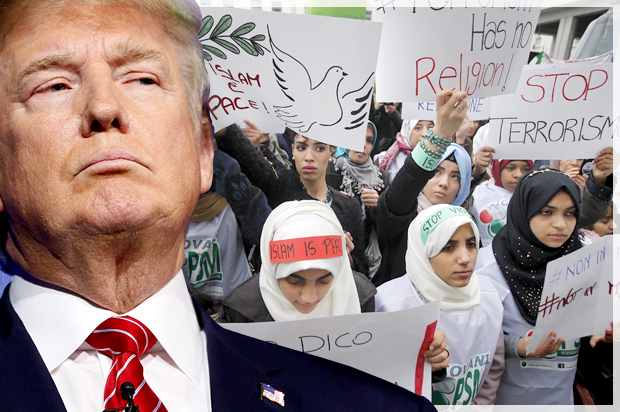The United States Court of Appeals for the Ninth Circuit, in San Francisco, has ruled against President Donald Trump’s most recent effort to pass a travel ban against a group of six predominantly Muslim countries. The countries included Iran, Libya, Somalia, Sudan, Syria and Yemen.
The ruling affirmed that federal immigration law allows the president can bar immigrants in certain circumstances, but he can’t do it discriminatorily.
“A reasonable, objective observer — enlightened by the specific historical context, contemporaneous public statements and specific sequence of events leading to its issuance — would conclude that the executive order was issued with a purpose to disfavor a particular religion,” Judge Derrick K. Watson wrote, according to a report by The New York Times.
In his decision, Watson wrote that “the Order does not tie these nationals in any way to terrorist organizations within the six designated countries. It does not identify these nationals as contributors to active conflict or as those responsible for insecure country conditions. It does not provide any link between an individual’s nationality and their propensity to commit terrorism or their inherent dangerousness.”
Watson also used Trump’s own tweets against him.
“Indeed, the President recently confirmed his assessment that it is the ‘countries’ that are inherently dangerous, rather than the 180 million individual nationals of those countries who are barred from entry under the President’s ‘travel ban,'” Watson wrote. In his citations, Watson specifically mentioned a reference to a Trump tweet in which the president said: “we need a TRAVEL BAN for certain DANGEROUS countries, not some politically correct term that won’t help us protect our people!”
That's right, we need a TRAVEL BAN for certain DANGEROUS countries, not some politically correct term that won't help us protect our people!
— Donald J. Trump (@realDonaldTrump) June 6, 2017
The judge also cited a CNN article in which White House press secretary Sean Spicer said that Trump’s tweets could be considered “official statements.”


